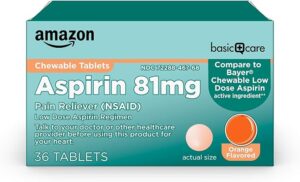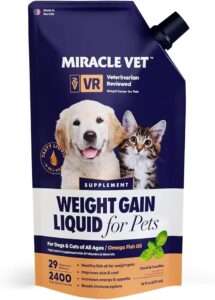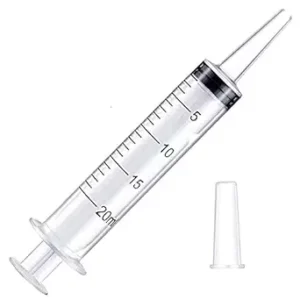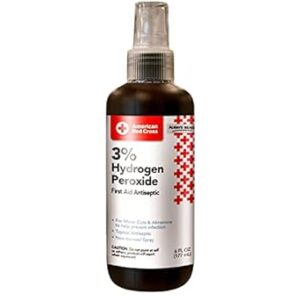A wound on your cat's tongue - How to treat it?
A wound on your cat’s tongue is of course cause for concern for you as the owner. Cats can be injured by sharp objects, rough food (bones from a captured bird) or even during fights. It is important not to wait to avoid deterioration. After all, you need a tongue to eat and therefore to survive. So you want to promote your cat’s recovery as quickly as possible. This article discusses the symptoms, treatment and tips for caring for a wound on your cat’s tongue.
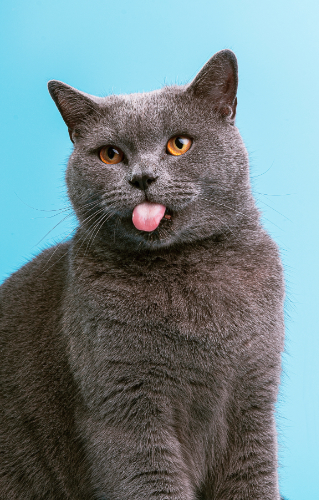
Symptoms of a wound on your cat's tongue
In fact, it is usually quite easy to notice a wound on your cat’s tongue. The tongue should be a nice light pink color with small hooks on it. If the surface of the tongue is not light pink and does not contain hooks, there is a wound on your cat’s tongue. In worse cases, a fair amount of blood can of course also be seen. A tongue is very well supplied with bloodvessels, so when injured it quickly looks like a bloodbath. But sometimes an owner has not noticed that the cat has a wound on its tongue. In that case, there are also other symptoms that you often see in cats with a wound on the tongue.
For example, look for signs such as excessive drooling, bleeding in the mouth, foul breath, loss of appetite or difficulty eating. They often hang out their tongue. Your cat may also show pain when opening its mouth, meow different, or behave differently than usual. If you notice any of these symptoms, it is recommended that you carefully examine your cat’s mouth.
Causes of a tongue wound in your cat
In most cases, a fight with another cat is the cause for a wound on your cat’s tongue. But accidents with a car or bicycle also often cause problems with the tongue. After all, you can quickly bite your tongue out of fear. We also often see sores on the tongue that we call “ulcerations” when a cat is infected with cat flu or when it has licked something that causes a chemical burn. Snail poison, for example.
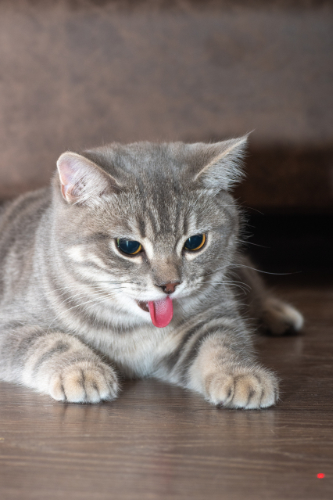
Treatment
Calm your cat if he is panicking:
A cat with a wound on the tongue can be anxious and stressed. Try to calm him down by creating a calm and safe environment for him. If necessary, leave him alone if you are completely panicked yourself. That is counterproductive and then he will absolutely not allow you to examine your cat.
Examine the wound in your cat's tongue:
Open the mouth gently and calmly. Just far enough to look at his tongue, but don’t open it too wide. This feels very annoying for your cat, especially if he already has pain in his tongue. If you open it too far, your cat will be less cooperative. Assess the size and depth of the wound on the tongue. And also look for the presence of foreign objects such as a piece of bone in the wound and in the rest of the mouth. Be careful not to cause further damage to the tongue. Also check for loose tooth.
Stop the bleeding:
Yes, good then. Of course that doesn’t work. You should press the wound the wound on the tongue of your cat a little, but your cat will not allow that. As long as the blood doesn’t come out in streams, you can let the bleeding go for a while. In principle, the bleeding will stop on its own within 5 minutes. So please wait. Incidentally, a cat can also swallow the blood. The following days you will see black stools. That’s because the blood was digested, then it turns black. You know where the blood came from and so you can ignore it.
Do you need to see your vet?
If the blood is running out of his mouth a lot than it’s an emergency! Go and see your vet. If the wound on your cat’s tongue is larger than 0.5 cm or is a deep wound, it is best to visit a vet. Do that even when in doubt. If the wound is small and nice and clean, you can also wait a few days. Wounds in the mouth and therefore also on the tongue usually heal very quickly. So you could basically wait a day or two to see how the wound will heal on its own. Is it only going to look worse? Then you should go to your vet.
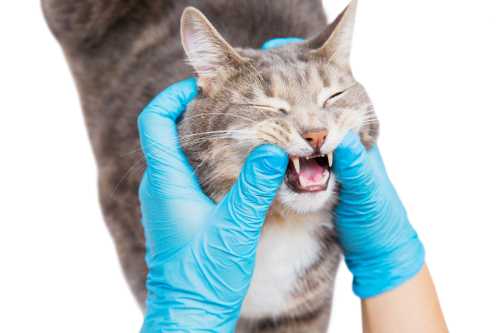
The bleeding has stopped, now what?
Pain relief
A painkiller is pleasant for your cat. After all, a wound on the tongue of your cat will hurt quite a bit. You can use half a tablet of a children’s aspirin for this. They usually have a dosage of about 80mg per tablet, so with half a tablet you give 40mg, which is enough to provide your cat with a painkiller. However, you can only give this once every 2 days. WATCH OUT!!! OTHER FORMS OF HUMAN PAIN KILLERS ARE KILLING CATS. SO DO NOT GIVE IT!!! Only aspirin is suitable for cats.
If you can’t find aspirin, you can also give your cat some CBD oil.
CBD oil has an anti-inflammatory and analgesic effect. Your cat’s tongue will then hurt him less and also stimulate wound healing. This way he recovers faster and you can relax a bit as an owner. You can also give it at the same time as aspirin.
Food and water
Offer your cat soft food, such as wet food. This ensures that he gets enough water and also the necessary energy to make sure he has the right nutrients to recover. He doesn’t necessarily have to eat a full meal. But cats can get very ill from not eating for a day. Especially overweight cats. In severe cases, they can even die. So it is really very important that your cat eats some food.
Try to get at least half a meal in. If this is difficult to do, you can use the very tasty and energy-rich Miracle vet hight calorie weight gainer for dogs & cats food so that it is easier for your cat to lick. It is also possible to suck this fluid into a syringe and force-feed your cat. This will prevent him from getting a fatty liver as a result of not eating and thus preventing him from dying.
You can also use a kind of high-calorie “milk”. This is also easier for a cat to take in and in case you neet to, it’s easier to put into its mouth via a syringe.
Wound care
If your cat allows it, it would be nice to treat the wound on your cat’s tongue with hydrogen peroxide 3% twice a day for 5 days. You put this on a fresh cotton swab and use it to dab the wound on your cat’s tongue. This has an antibacterial effect and so the chance of a wound infection decreases enormously. Saves another trip to your vet. But not all cats will thank you for this. It can also happen that your cat will drool a lot for a few minutes. This is because he hates the taste of it.
Peace and security
Give your cat plenty of rest and create a safe and quiet space where they can recover without being disturbed. Also, limit contact with other pets to avoid potential irritations or fights. After all, if you’re not feeling well, you sometimes get irritated very easily.
Wound control
Continue to check the wound on your cat’s tongue and mouth daily for signs of infection, such as swelling, redness, pus, or an unpleasant odor. Contact a vet immediately if you notice such symptoms.
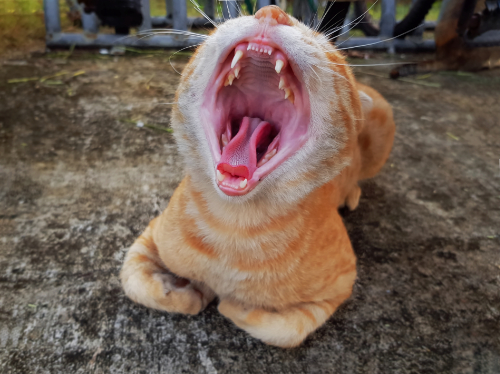
Conclusion
A wound on your cat’s tongue is quite a scare! But usually it is not very serious. It just requires a little extra attention to prevent possible complications. Always consult a vet for a thorough assessment if you are unsure. With proper treatment, good hygiene and attentive wound management, your beloved feline can recover quickly and resume it’s normal life. That will probably be again after a day or 3-4.

